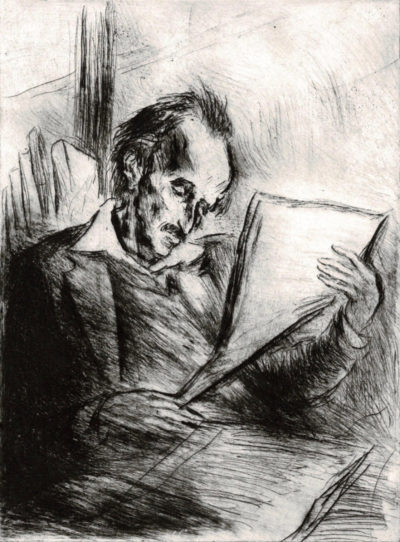Part of the Hans Keller String Quartet Project
YCAT Hans Keller Artists


In 1984, the year before he died, Hans Keller received a letter from Michael Kaye, the former general manager of both the London Symphony Orchestra and the South Bank Centre, who had recently been recruited by the trustees of a brand new organisation, the ‘Young Concert Artists Trust’. YCAT’s aim, Kaye explained, was ‘to help a limited number of young concert artists of outstanding merit by providing expert guidance and management at the very beginning of their professional careers.’ This kind of help, he wrote, ‘is so much more valuable to a young artist than simply another prize or award.’
The artists were to be selected by audition, and Kaye wanted Keller to be one of the judges: ‘I need hardly tell you that the quality of judging is crucial to what we are trying to achieve and, therefore, how much we should all value your help.’
Keller agreed and spent three full days hearing candidates in July 1984. The following year, despite being mortally ill, he returned to judge the 1985 YCAT finalists only 6 weeks before he died.
Over three decades later, YCAT’s mission remains the same, and many of its alumni are now household names. However, embarking on a career as a concert artist is now harder than ever, after the musical world was thrown into chaos by the Covid-19 pandemic. The Cosman Keller Art & Music Trust was happy to be in a position to do something to help YCAT’s artists survive 2020, and to consolidate its support in a new partnership with YCAT in 2021.

L-R: Esther Agusti (violin), Nepomuk Braun (cello), Marko Milenkovic (viola) and Maxime Michaluk (violin)
For the next three years, the Trust will underpin YCAT’s support for the remarkable Adelphi Quartet who now become the inaugural YCAT Hans Keller Artists. The Trust is also supporting the creation of new works for string quartet and is delighted to have collaborated with YCAT to commission Bushra El-Turk’s moving new work Saffron Dusk for the Adelphi Quartet.
Born in London to Lebanese parents, Bushra El-Turk’s work is often defined by the integration of musics and musicians from different cultural traditions, as well as a compulsion to highlight and challenge sociocultural issues, and a blurring of written and improvisational elements.

(photo: Ben McDonnell)
Saffron Dusk was inspired by the horrific explosion in Beirut in August 2020, which caused hundreds of deaths and thousands of injuries, as well as leaving over 300,000 people homeless. Bushra El-Turk writes:
‘This piece is dedicated to the victims and the families of those who lost their loved ones in the Beirut non-Atomic bomb explosion of 4th August 2020 where over 200 lives were lost and over 7000 of those injured had lost their homes. My recent trip to Beirut in March 2021, seeing the ruins and destruction for myself and hearing the stories of those who had just survived it by seconds, brought those feelings back. After writing this piece, I prayed through the poetry of Mahmoud Darwish, which has become a habit, to find the words that match the feelings of the grief I felt during that time in order to title this piece.’
The Adelphi Quartet made this recording of Saffron Dusk at the Bibliotheksaal in Polling in Bavaria, and it was premiered at the Wigmore Hall in May 2021. Bushra El-Turk said afterwards, ‘I feel blessed to have had a really wonderful quartet who understood the piece and played it with such energy, feeling, depth and dedication.’
Formed in 2017, the Adelphi Quartet studied with Rainer Schmidt (Hagen Quartet) at the Mozarteum University in Salzburg and received invaluable support and guidance from Eberhard Feltz and Valentin Erben. The individual members also studied with Igor Ozim, Benjamin Schmid, Rainer Schmidt, Thomas Riebl, Lawrence Power, Heinrich Schiff and Clemens Hagen, among others.
Concert highlights include recitals at the Sommerliche Musiktage Hitzacker, Kammermusik Wiesbaden, Musiktage Mondsee (Austria), the International Mozarteum Foundation (Salzburg) and the Théâtre de Namur (Belgium). The Quartet has also given performances of Schubert’s String Quintet with Valentin Erben (Alban Berg Quartet) at the Villa Musica in Germany, and undertaken exchange programmes at both McGill University in Montreal and the Guildhall School of Music & Drama in London.
In 2020 the Adelphi Quartet won First Prize in the prestigious Irene Steels-Wilsing Foundation Competition at the Heidelberger Frühling Festival. This season they return to the Heidelberger Früling Festival and give recitals for the Frankfurt Hindemith-Tage series and the Festival de Quatuor ‘Voix intimes’ in Tournai in Belgium. During the summer they work with young composers as part of Jeunesses Musicales Deutschland project.
The Cosman Keller Art & Music Trust is delighted to be supporting such remarkable young artists, in memory of Hans Keller, for whom the string quartet was the most purely musical form of composition and the closest to his heart. Keller’s contribution to the development of the string quartet in the second half of the twentieth century was immense. He coached many of the leading British ensembles of the time and, during his 20 years at the BBC, not only developed performance opportunities and enabled the best quartet-playing to be heard, but also did much to broaden awareness of this remarkable repertoire. Through his own broadcast talks and lectures around the country he made an outstanding contribution to the education of the audience for chamber music, and he had a unique ability to speak meaningfully to both musicians and their public at the same time. He inspired many composers to write new works for string quartet, including Benjamin Britten, who dedicated his own Third String Quartet to the man who, he said, ‘knows more about the string quartet, and understands it better, than anybody alive.’
Read more about Hans Keller and the string quartet